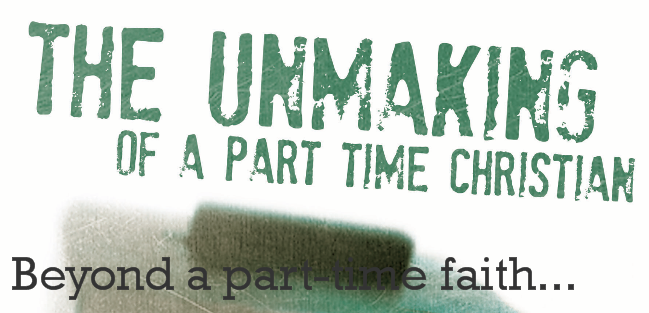
- It's one thing to write a potentially cutting edge book.
- Then it's a huge step to snag the interest of a publisher and to see the manuscript come into print.
- But it's something else entirely to present the finished product to people outside the immediate circle of close friends and family, for the book to sell more than a handful of copies, and for the great ideas that launched the book in the first place to be exposed to anyone at all. You know what they say about a tree falling in the woods....
You can't buy that kind of exposure. Well, my publisher can't buy that kind of exposure! Upper Room Books are great, but they simply don't have the resources.
Yesterday afternoon the magazine I'd been waiting for - The Presbyterian Outlook - arrived in my mailbox. I couldn't wait to find the review and there it was; a full page, thorough, well written and pretty-much 100% positive!
BUT... and this is a big but... there at the top of the page, the prominent 48-point bold-face headline had the title of my book wrong! Good grief, who could possibly screw up the title of the book under review???!!!
Don't make the mistake of blaming the book-review writer. This had to be editorial. Copy or page-design. I've had that happen to me in the Tampa Tribune, and everyone thinks it's the writer. Fact is, most errors are introduced after the article leaves the writer's desk.
Oh well... You win some... Regardless, here's the review. Read it, it's actually pretty good.
- DEREK
by Derek Maul; Nashville: Upper Room Books, 2009.
reviewed by Judith Fulp-Eickstead
Derek Maul, award-winning columnist for the Tampa Tribune, issues an invitation to anyone looking for a deeper level of commitment to Jesus Christ in a culture where “doing just enough to get by defines life for too many people and in too many contexts” (p. 17). The book consists of stories of people and communities who have transcended that "clock in-clock out" mentality to exhibit authentic discipleship. Maul shares transformative elements of his own faith journey, which includes experiences in a variety of church and para-church organizations, and experience as a young adult in a controlling religious organization led him to conclude that “religion based on fear is contrary to the invitation to follow Jesus, and I believe such a path serves to kill faith in many vulnerable followers who are manipulated and deceived” (p. 51).
As Maul reflects on the church, he cites many of the same problems other authors have pointed out, such as the fear of change and the tendency to venerate tradition and even habit. He recalls the often quoted seven deadly words, “We’ve never done it that way before,” and in response offers seven life-giving words, “I can do all things through Christ.” That reliance on Christ is the focus of the full-time faith Maul advocates throughout the book. He recalls conversations from a class of energized young adults who are able to be truthful about their doubts and unbelief on their shared path of discipleship, invites us to be “flies on the wall” at a senior banquet where parents and youth share meaningful memories and real faith. The author points us to Christ, who meets us wherever we are on our pilgrim journey and invites us to the next step. This kind of authentic faith cannot be made into a formula and is not easy to define. But it is the essence of what it means to be “emergent,” says Maul.
I would have liked more reflection on what it means to be an “emergent church,” especially within the larger culture of the Presbyterian Church, and too often the book follows well-worn paths, such as the section on the Bible as "guide book."
Maul offers a challenge, however, to “live as if you mean it,” and engage in a journey that challenges our perspective and sets us on a deliberate path of pilgrimage. The challenge is best met, according to Maul, with the support of other Christians in faith communities, in intentional small groups, and in our own families. Having real conversations about authentic faith and a shared prayer life with a consistent group of companions is a source of encouragement and accountability. But the call to engage goes far beyond such intimate circles. We are ultimately called to engage a broken world with God’s promises and God’s purpose — relationship, restoration, and reconciliation. This book is very accessible and could serve as an excellent resource for small groups or adult education classes, with Scripture, prayers, and thought-provoking questions at the end of each chapter.
JUDITH FULP-EICKSTEAD is associate pastor, Trinity Church, Arlington Va.




